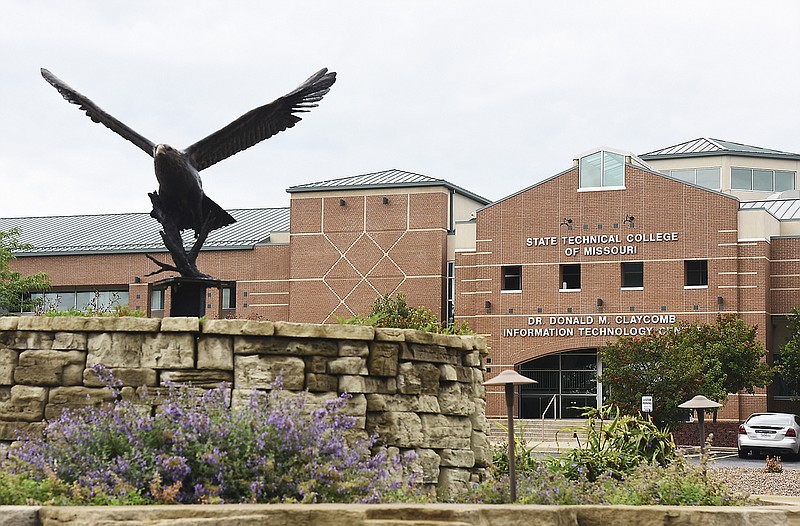State Technical College in Linn will be able to assist more students in its nuclear technology program, thanks to a grant from the Nuclear Regulatory Commission, at a moment when the uncertain future of nuclear power in the United States is being analyzed.
State Tech announced Wednesday that it received a $150,000 increase and year-long extension on its scholarship grant from the Nuclear Regulatory Commission.
The NRC is an independent federal agency - not part of the U.S. Department of Energy - tasked with regulating the safety of the nuclear power industry in the U.S., reviewing license renewals of existing nuclear plants, materials safety oversight and licensing and waste management of high- and low-level nuclear waste generated by reactors. The agency's budget is 90 percent covered by licensee fees to nuclear power plants.
"Congress authorized the NRC to provide federal funding opportunities to qualified academic institutions to encourage careers and research in nuclear, mechanical and electrical engineering, health physics and related fields to meet expected future workforce needs," a news release from State Tech said.
Marketing director Brandon McElwain said State Tech has been awarded a grant from the NRC every year since 2008.
In the 2016-17 school year, he said State Tech awarded $59,798 of NRC grant money to 13 students; each student can receive up to $10,000 based on financial need for tuition and fee assistance.
The amount State Tech was awarded through June 30, 2019, was bumped up by the NRC to $300,000.
State Tech's news release said that gives 100 percent of the money to scholarships for its nuclear technology students.
A new fusion will happen in State Tech's nuclear technology program this fall too, as the program will move from an off-campus site in Mexico to the main campus in Linn.
"This new facility will allow students to utilize all the state of the art labs we have on campus, including the newly renovated nuclear radiologic controlled area," Aaron Kliethermes, assistant dean of extended programs, said in an email.
Students in the program can choose one of three speciality options: instrumentation and control; radiation protection; or reactor operations.
Program information on State Tech's website also noted, since 2006, its graduates in nuclear technology reported an 89 percent employment placement rate 180 days after graduation. Their average salary was $60,678.
According to the Bureau of Labor Statistics last year, most of the country's nuclear technician jobs are based in 14 states, Missouri included. The highest nuclear technician job concentrations are in South Carolina, Pennsylvania, Illinois and Virginia.
"There are 61 commercially operating nuclear power plants with 99 nuclear reactors in 30 states in the United States," the U.S. Energy Information Administration reported in May.
The same agency found in its "2017 Annual Energy Outlook" that many of those aging nuclear plants are expected to shut down before 2050. As the power supply of natural gas and renewables like wind and solar is projected to increase over the course of coming years, the country's nuclear capacity is expected to shrink as plants surpass the 60-year period "covered by their original 40-year operating license and the 20-year license extension that nearly 90 percent of plants currently operating have either already received or have applied for."
Projections in the EIA's outlook study "do not envision a large amount of new nuclear capacity additions. By 2050, only four reactors currently under construction and some (updates) at existing plants are projected to come online."
Those four reactors under construction are at two plants, one in Georgia and the other in South Carolina.
Bloomberg has reported the Trump administration would like to review the U.S.'s nuclear plants and calculate what it would cost to revitalize the industry. Bloomberg's estimates through 2020 project an annual cost of billions of dollars.
State Tech's website for its nuclear technology program does note, "While there may be a perception that the nuclear industry is not growing in the United States, the nuclear plants we do have will be running for decades. As a result of an aging workforce (because nuclear jobs pay so well few employees quit) the job prospects as a result of retirements will continue to grow."

